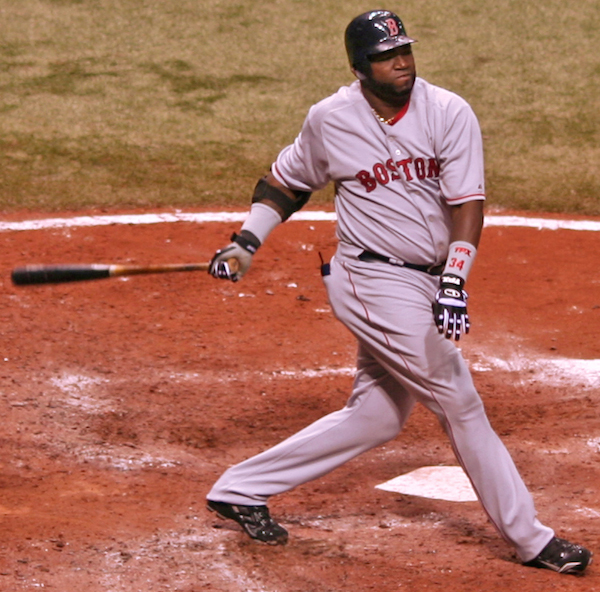Dear Sports Fan,
Does a baseball team have to use a DH or designated hitter in an American League game? What if they have a pitcher who is really good at hitting?
Thanks,
Charlie
Dear Charlie,
No! And thanks so much for your question because I had no idea that this was true before I researched the topic to answer it. Any team that would prefer to have their pitcher bat is allowed to do that, but by doing so, they must decline the option to have a designated hitter for that entire game. For people who are not totally familiar with baseball, let’s do a little background before explaining this surprising freedom within the rules.
A designated hitter is a player who hits but does not play in the field. It’s one of the strangest rules in sports because it has such an important impact on the game and yet it is used in only half the Major League Baseball games each season. The American League plays with a designated hitter. The National League does not. It’s perhaps the most important quirk that stems from a history as independent leagues and not just two halves of the same league. So, in games between two National League teams, the pitchers take their turn hitting, just like the rest of their teammates. In games between two American League teams, the pitchers concentrate just on hitting and let a designated hitter take their spot in the batting order, once every nine times around. In interleague play or games with one National League and one American League team, where the game is played matters. The team at home gets to use their rules while the away team adapts.
The advantages of having using a DH are clear. Pitching is a very specialized skill. So is batting. If you are able to use two separate players to fill these specialized needs, you’re more likely to get high-quality performance in both realms. In the National League, where pitchers have to hit, they’re usually the worst hitters on the team. Having a pitcher at bat one out of every nine times a team gets to hit translates over the long run into a less high scoring and less highly skilled game. I have to say though, the DH rule has always bothered me a little. I feel like it’s somehow cheating to let players play only half the game — either just defense or just offense. Plus, I thought, it would really do a disservice to a player who was so abundantly talented that he could excel in both phases.
Your question prompted me to dig deeper into the rulebook and discover something wonderful. The DH is entirely voluntary! Teams don’t have to use a designated hitter. Before the game, they can simply declare that their pitcher is going to hit and then play the game that way. What a power move! I imagine a team doing this to send the message to their opponent, “we don’t need the silly DH rule. We can beat you without it!” In reality though, this almost never happens, and when it does, it’s sometimes an accident. For instance, in 2009, then Tampa Bay Rays manager Joe Maddon mistakenly listed two players as playing third base and in correcting the error, was forced to play the game without a DH.
Other times, teams make a substitution during the game that loses them their DH rights. This is easily understandable. Imagine a situation where the DH is the only other player on the team that can play a position — say catcher, since that’s a very unique position. Part of the way through the game, the starting catcher gets injured and so the player who was playing DH needs to step into that role. Once the DH plays in the field, his team loses DH privileges and has to use their pitcher as a hitter as well.
One thing a team cannot do (but which would be a nice trick if it were allowed) is to start a player in the DH spot who they never intend to have bat — for example, a starting pitcher who is on a rest day. That way, the first time the DH came up to bat, the team’s manager would be able to substitute for the perfect pinch hitter — a fast contact hitter in some situations or a hulking power hitter in others. This tactic was thought of and used by former Baltimore Orioles manager Earl Weaver before being outlawed in 1980 by the so-called Phantom DH rule.
Whether by accident or on purpose, a team declining or losing their ability to use a designated hitter is one of those rare baseball oddities that makes the sport so rewarding to follow.
Thanks for your question,
Ezra Fischer

